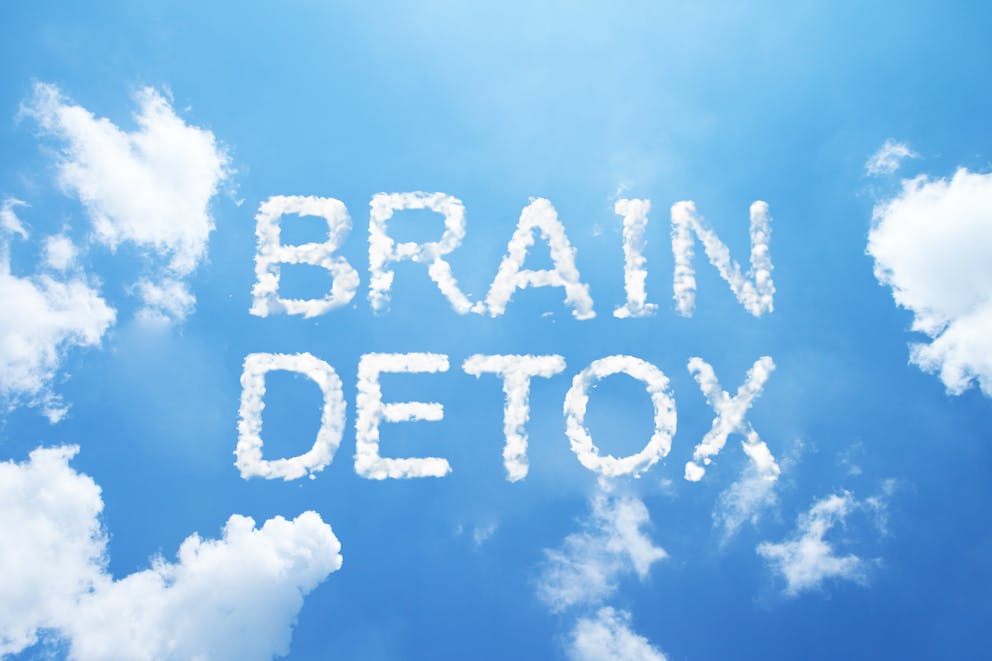Sleeping Detoxifies Your Brain
We all know that getting a good night's sleep is essential for our physical and mental health.
But did you know that brain detoxification during sleep plays a critical role in our overall well-being?
While we sleep, our brains are hard at work clearing out waste products that have accumulated throughout the day.
This nightly detoxification process is essential for maintaining cognitive function and memory and preventing neurodegenerative diseases, such as Alzheimer’s disease.
When we don't get enough sleep or experience poor sleep quality, this essential brain detoxification process can be disrupted.
The consequences can be significant, potentially leading to brain fog, fatigue, and an increased risk of long-term health issues.
Not only that, but a lack of sleep can negatively impact other areas of health care.
The Science Behind Brain Detoxification During Sleep
Deep within our brains, a remarkable cleaning system known as the glymphatic system is activated during sleep.
This system acts as the brain's waste disposal system. It works by flushing out toxins and metabolic byproducts that accumulate throughout the day.
The Role of Cerebrospinal Fluid
Cerebrospinal fluid (CSF), a clear, watery liquid that surrounds the brain and spinal cord, plays a crucial role in this nocturnal cleanup process.
During sleep, the glymphatic system increases CSF flow, allowing it to efficiently wash away harmful waste products like beta-amyloid, a protein linked to Alzheimer's disease.
This increased flow of CSF during sleep acts like a nightly brainwash. It clears out toxins that could otherwise interfere with cognitive function and contribute to neurodegenerative disorders.

Deep Sleep: Prime Time for Detoxification
As we transition into the deeper stages of sleep, particularly slow-wave sleep, the glymphatic system kicks into high gear.
Research from the National Institutes of Health (NIH) has shown that brain detoxification peaks during these deep sleep stages, highlighting the importance of consistent, high-quality sleep for maintaining a healthy brain.
During deep sleep, brainwave activity slows down, allowing for increased space between brain cells.
This creates optimal conditions for the glymphatic system to flush out waste products that can impair cognitive function effectively.
Getting enough deep sleep each night ensures this crucial process can occur efficiently.
Sleep Deprivation and Brain Health
When we consistently miss out on sleep or experience poor sleep quality, the glymphatic system doesn't have adequate time to do its job.
As a result, waste products can build up in the brain, potentially leading to:
Cognitive decline.
Memory problems.
Increased risk of neurodegenerative diseases.
Even a single night of sleep deprivation can disrupt this delicate detoxification process.
This underscores the importance of making quality sleep a priority for your health care.
Factors That Can Impact Brain Detoxification
Several factors can influence how effectively your brain detoxifies during sleep:
Sleep Duration and Quality: Aim for 7-9 hours of quality sleep per night.
Sleep Position: Studies suggest that sleeping on your side may promote better glymphatic flow than sleeping on your back or stomach.
Behaviors During Sleep: Addressing sleep disorders, like sleep apnea or teeth grinding during sleep, can significantly enhance sleep quality, contributing to a healthier brain.
Boosting Your Brain's Nightly Detox
Now that you understand the importance of brain detoxification during sleep let's explore how to enhance this crucial process:
Prioritize a Consistent Sleep Schedule
Going to bed and waking up around the same time each day, even on weekends, helps regulate your body's natural sleep-wake cycle (circadian rhythm) and optimizes brain detoxification.
Create a Relaxing Bedtime Routine
Wind down an hour or two before bed with relaxing activities. These might include taking a warm bath, reading, or listening to calming music.
These activities help signal to your body that it's time to sleep, promoting more restful sleep and, in turn, a healthier brain.
Optimize Your Sleep Environment
Make sure your bedroom is dark, quiet, and cool. To minimize sleep disruptions, consider using blackout curtains, earplugs, or a white noise machine.
Exercise Regularly
Engaging in regular physical activity has been shown to improve sleep quality. Even a brisk walk during the day can make a difference.
Avoid Caffeine and Alcohol Before Bed
These substances can interfere with sleep patterns and hinder the detoxification process.
Eat a Healthy Diet
A proper diet rich in berries, cruciferous vegetables, and lean protein can support overall brain health.
Consider Intermittent Fasting
Emerging research suggests that incorporating intermittent fasting into your lifestyle could potentially enhance the glymphatic system's function during sleep.

The Importance of Sleep for a Healthy Brain
Beyond brain detoxification, sleep plays a vital role in numerous brain functions, including:
Memory consolidation.
Learning.
Emotional regulation.
Creativity.
Stem cell health.
Electrical activity regulation.
Our bodies do amazing things during sleep. Multiple body functions, such as muscle repair, hormone regulation, and growth, occur while we sleep, further emphasizing its importance.
The Importance of Deep Sleep in Supporting Brain Health
Deep sleep plays a crucial role in brain detoxification, as it is during this phase that the brain's glymphatic system becomes more active, clearing out waste and toxins that accumulate throughout the day.
Maintaining consistent, high-quality sleep is essential for this detox process to function optimally.
Magnesium glycinate can support deeper, more restful sleep by promoting relaxation and reducing stress, which may enhance the brain’s ability to detoxify effectively during the night, leading to better overall cognitive health.
Conclusion
Brain detoxification during sleep is essential for maintaining a healthy brain, improving cognitive function, and reducing the risk of neurological disorders.
By adopting healthy sleep habits, we can optimize this nightly cleansing process and unlock its remarkable benefits.
Making sleep a priority is not just about feeling rested. It's a fundamental investment in our long-term brain health and well-being.
By prioritizing quality sleep and incorporating strategies to boost brain detoxification, you can wake up feeling refreshed, focused, and ready to conquer the day ahead.
Remember, taking care of your brain is a lifelong endeavor, and a good night's sleep is an essential part of that journey.
FAQs about brain detoxification during sleep
Does your brain detox while sleeping?
Yes, your brain actively detoxifies itself during sleep through a process primarily driven by the glymphatic system.
This essential system works more efficiently during sleep, flushing out harmful metabolic waste products and toxins that accumulate in the brain throughout the day.
How do you detox while sleeping?
You facilitate brain detoxification during sleep by achieving good sleep quality, especially deep sleep.
During deep sleep stages, brainwave activity slows, allowing the glymphatic system to work more effectively.
What is cleared from the brain during sleep?
Harmful substances, such as beta-amyloid (linked to Alzheimer's disease), tau proteins, and other metabolic byproducts, are removed from the brain during sleep.
Clearing these substances contributes to a healthier brain and potentially reduces the risk of age-related cognitive decline and neurodegenerative conditions.
What stage of sleep cleans the brain?
The brain's cleansing process through the glymphatic system is most active during deep sleep, particularly slow-wave sleep.
During these stages, brainwave activity is at its slowest, allowing for greater space between brain cells and facilitating the efficient removal of waste products from the brain.
Supporting Data
Previous blog
Why Are the Obese More at Risk for COVID-19Next blog
Diet Soda can Cause a Fatty Liver
Popular
08/21/2024
41.2K views
05/22/2024
37.4K views
11/18/2024
218.5K views
03/18/2024
11/21/2022




